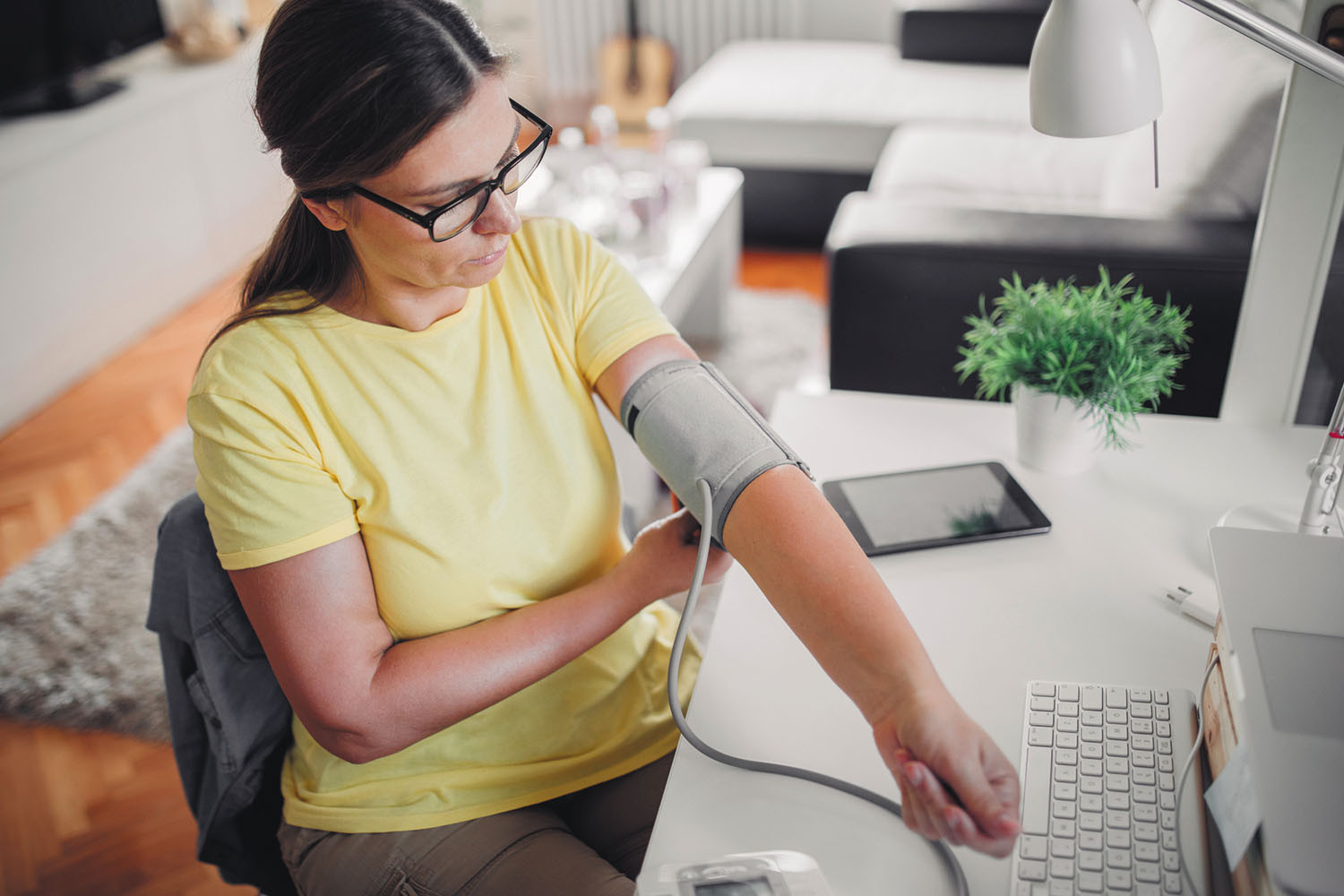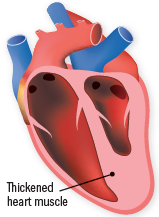
Counting steps is good — is combining steps and heart rate better?

Appendix pain: Could it be appendicitis?

Can saw palmetto treat an enlarged prostate?

How does Ozempic work? Understanding GLP-1s for diabetes, weight loss, and beyond

Zinc: What it does for the body, and the best food sources

Respiratory health harms often follow flooding: Taking these steps can help

Tips to leverage neuroplasticity to maintain cognitive fitness as you age

Can white noise really help you sleep better?

Celiac disease: Exploring four myths

What is prostatitis and how is it treated?
Heart Health Archive
Articles
Managing mitral valve disease: Progress and promise
Operations to fix faulty mitral valves are on the rise. But less invasive nonsurgical strategies are under development.
The mitral valve — so named because it resembles a miter, a bishop's formal headdress — sits between the two chambers on the left side of your heart. Inherited conditions, diseases, or a combination of the two can cause changes in the size, shape, flexibility, or mechanics of the mitral valve, leaving it unable to close properly. When that happens, blood may flow backward between heartbeats, a problem called regurgitation.
While mild cases are generally harmless and cause no symptoms, more severe cases can increase the heart's workload, leading to breathlessness, fatigue, and other symptoms. Mitral valve regurgitation also produces a distinct sound (heart murmur) that a doctor may hear through a stethoscope.
Vegetable of the month: Cauliflower
Image: © Joe_Potato/Getty Images
Just a few years ago, cauliflower was considered kind of ho-hum, relegated mainly to frozen vegetable medleys or crudité platters. But these days, the mild white vegetable is far more popular, thanks to its versatility as a carbohydrate substitute. Recent diet trends that encourage people to eat fewer starchy and grain-based foods likely contributed to cauliflower's rise.
Even if you're not avoiding carbs, using cauliflower as a substitute for starchy foods such as rice is a good way to cut calories and eat more fiber. You can also make mashed cauliflower instead of mashed potatoes (see www.hsph.harvard.edu/nutritionsource/mashed-cauliflower). Or try making a pizza with one of the many cauliflower-based pizza crusts now available in most grocery stores.
Pay less for heart drugs without using insurance?
Research we're watching
Image: © Gligatron/Getty Images
Do you take generic drugs to lower your blood pressure or cholesterol? You may save money by paying out of pocket at Walmart instead of a paying a Medicare prescription copay, according to an analysis in the July 24 Annals of Internal Medicine.
Walmart (and a number of other large chain stores) offer generic drug discount plans; they sell 30-day supplies of popular generic drugs for $4.
Traditional Southern diet is bad news for people with heart disease
Research we're watching
People with heart disease who eat a traditional Southern diet (rich in meat and fried foods) may be more likely to die sooner than people who follow a plant-based Mediterranean-style diet.
So says a study in the July 12 Journal of the American Heart Association that focused on people with a history of heart disease, such as a heart attack or bypass surgery. Researchers conducted dietary assessments on 3,562 people ages 45 and older and tracked them for about seven years.
New nasal spray may stop rapid heart rhythm
Research we're watching
An experimental nasal spray shows promise for quickly treating an abnormally fast heart rhythm known as supraventricular tachycardia (SVT), a new study reports.
Caused by an electrical misfire that overrides the heart's natural pacemaker, SVT occurs unpredictably, lasting anywhere from minutes to hours. Although usually harmless, the condition can make people dizzy or lightheaded. People with persistent SVT usually need to go to an emergency room for an injection of a drug to slow the heart.
Blood pressure treatment might protect your brain
Research we're watching
Image: © mixetto/Getty Images
Aggressively treating high blood pressure might help ward off cognitive changes, according to findings presented at the Alzheimer's Association International Conference in July. Researchers from the Systolic Blood Pressure Intervention Trial compared two strategies to manage high blood pressure in more than 9,300 older adults (average age about 68). One strategy aims to achieve the standard treatment level for high systolic blood pressure (the first number in a blood pressure reading), keeping it under 140 mm Hg. The more aggressive strategy sets a goal of less than 120 mm Hg. The aggressive strategy reduced not only heart risks, but seemed to protect the brain.
People in the more aggressively controlled blood pressure group were 19% less likely than those in the standard treatment group to develop new cases of mild cognitive impairment (often a forerunner to dementia). They were also 15% less likely to develop any form of dementia or mild cognitive impairment. This study provides another reason to work with your doctor to reduce high blood pressure.
Push past your resistance to strength training
Using stretchy bands to build muscle can be an easy and effective way to burn more calories and boost your heart health.
Image: © EMPPhotography/Getty Images
Most people know that brisk walking and other movement that gets your heart beating faster is great for your cardiovascular health. But even health-conscious folks often overlook another key fitness recommendation: doing muscle-strengthening exercises at least twice a week.
Not crazy about the idea of going to a gym and hoisting heavy weights? There's no need to do so. You can work your muscles with stretchy bands (called resistance or exercise bands) at home. In fact, if you're out of shape or overweight, a simple resistance band workout can be a good way to ease into exercise, says Dr. Edward Phillips, assistant professor of physical medicine and rehabilitation at Harvard Medical School.
What is cardiomyopathy?
Ask the doctor
Q. A friend was just diagnosed with cardiomyopathy. What causes this problem, and what is the prognosis?
A. In simple terms, cardiomyopathy refers to abnormal heart muscle. Some cases are mild and require no treatment. But in other cases, the condition causes severe symptoms (such as breathing difficulty and leg swelling) and leads to serious complications. Cardiomyopathy is one of many possible causes of heart failure, which happens when the heart is unable to pump well enough to meet the body's need for oxygen-carrying blood.

Counting steps is good — is combining steps and heart rate better?

Appendix pain: Could it be appendicitis?

Can saw palmetto treat an enlarged prostate?

How does Ozempic work? Understanding GLP-1s for diabetes, weight loss, and beyond

Zinc: What it does for the body, and the best food sources

Respiratory health harms often follow flooding: Taking these steps can help

Tips to leverage neuroplasticity to maintain cognitive fitness as you age

Can white noise really help you sleep better?

Celiac disease: Exploring four myths

What is prostatitis and how is it treated?
Free Healthbeat Signup
Get the latest in health news delivered to your inbox!
Sign Up











